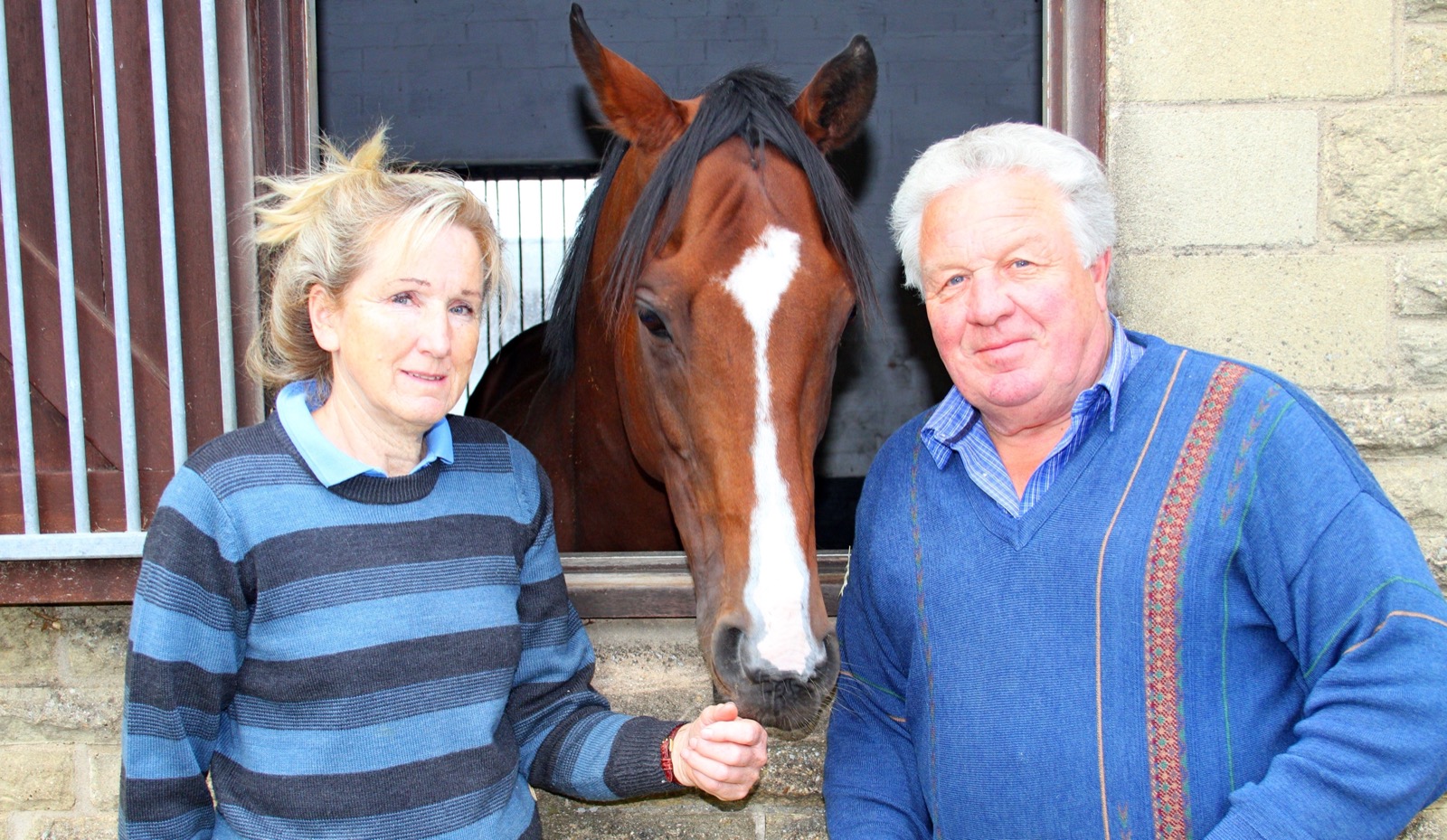Fred and Rowena Cook established their Equine Management and Training centre near Burghley in 1989 to provide a complete management and training service for horses whether starting the young horse, training the older horse or carrying out rehabilitative or remedial schooling.
Much of their wonderful work is focused on retraining former racehorses, but for every horse, says Rowena, keeping them healthy and happy particularly when they are stabled is the essential foundation for success.
Could you explain what it is you offer and what sort of horses you are training, or retraining?
We have been involved with the Retraining of Racehorses charity (ROR) since its inception and we absolutely love rehabilitation work; nothing is more rewarding than getting a horse back out competing, back on the racecourse or being a happy riding horse once again. Our rehab works typically comprises kissing spine, tendon and ligament injuries and fractures as well as SI dysfunction and the associated issues which go with these sorts of conditions.
We see a lot of horses with behavioural issues, which can be the result of a breakdown of communication between horse and owner, or because the horse is trying to say that it is not happy in its work or environment but is not being listened to.
On your website and in your book on retraining, you say “the welfare of each horse is always the number one priority”… could you explain what that means?
For horses to work well, recover from an injury or ailment, or overcome mental or physical trauma they must be physically healthy but they must also be happy and confident. Mental health welfare is as important in a horse as it is with people.
Horses suffer from anxieties and phobias just as we do , and the only way they can show their distress or discomfort is by doing something their owner does not want them to do. Of course, bucking, bolting, rearing and napping of some description, biting and kicking are the common displays and by time a horse gets to this stage he is pretty unhappy or upset. Head tossing, teeth grinding, tail swishing and a shortened stride pattern are less vociferous signals that something is wrong somewhere. The so-called stable vices such as weaving, box-walking and others are stress/boredom induced, but all these demonstrations of stress need to be addressed on an individual basis by changes to the horse’s management and work routine.
Presumably that includes the management of their stable environment, including bedding?
Your choice of bedding is always a very important management consideration. A bed must be inviting so that a horse will lie down and it must also be deep enough to protect against pressure being created to hocks and elbows in particular. Horses are very sensitive to movement under their feet so bedding must feel stable and secure underfoot. We have all been in yards where we’re hit by the smell of ammonia. This is so unhealthy for horses as it compromises the respiratory system, and bedding should be as dust-free as possible for the same reason, so consideration has to be given to how the material performs over time as it breaks downs. Apart from being comfortable to lie on, bedding must provide support to the limbs as horses will spend quite a lot of time sleeping standing up. And that support is also important for the feet to help with hoof health.
You have been using Bedmax for many years. Can you tell us why?
Bedmax is our choice because it provides a comfortable and supportive bed, partly due to the 3 grades of flake size within the bales, which is important not just for horses in general but particularly those here recovering from operation or injury as horses are confident to lie down. This structure also ensures good frog and limb support for the standing horse too, as well as taking urine away from the bedding surface meaning that horses lie on dry rather than wet bedding. Bedmax is a hard-wearing product which is important when we need to have horses in for longer periods; and when it finally does break down the small pieces work their way to the bed base so get removed with wet matter.
Being made from pine wood it has naturally occurring antibacterial properties which is a very important health consideration for both respiratory and hoof health – and newly opened bales have a lovely smell too. We find Bedmax an easy product to work with, mucking out is quick and it readily composts so that helps reduce the size of our muck heap! And its great on the garden as both a mulch and when composted.
Bedmax may not be the cheapest bedding product on the market, but the cost is outweighed by how durable it is, and of course by its health benefits.




